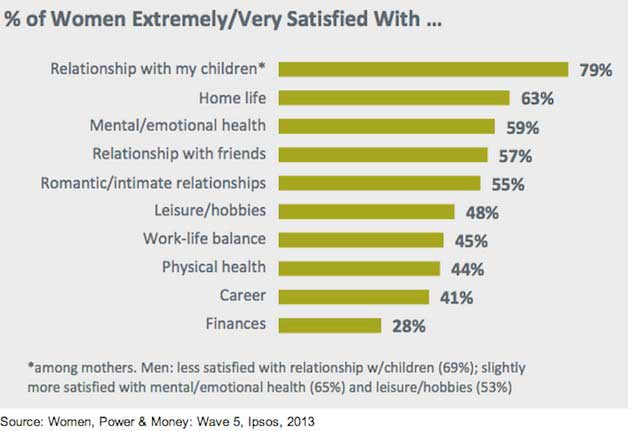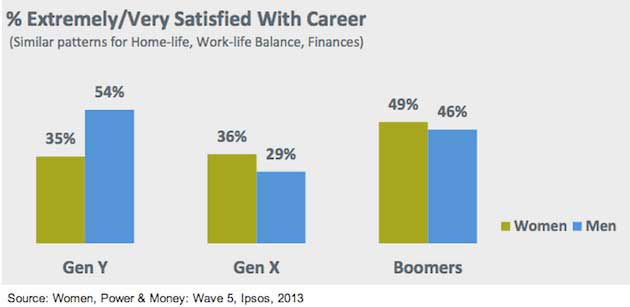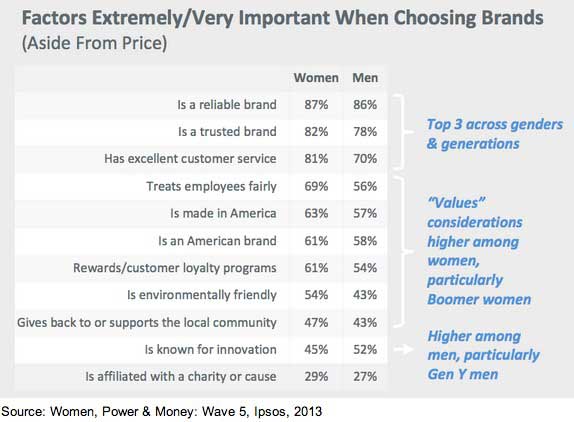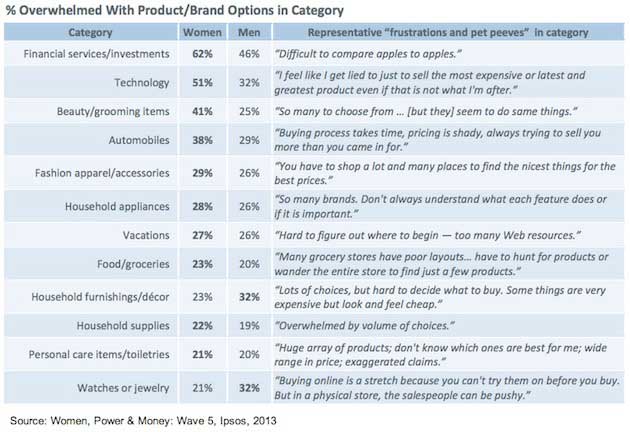More than half of US women are very satisfied with their relationships with their children (79%), home life (63%), mental/emotional health (59%), and relationships with friends (57%) and romantic partners (55%), according to a recent report by by Ipsos.
On the other hand, less than half are very satisfied with their leisure time (48%), work-life balance (45%), physical health (44%), and careers (41%). Only 28% of women are satisfied with their finances.

Regarding satisfaction with career, work-life balance, and home-life, Gen Y men (age 21-34) report higher levels than Gen Y women; however, Gen X (35-49) and Baby Boomer (50-69) women report higher satisfaction levels than men of their generations.

Below, additional key findings from the report, Women, Power & Money: Wave 5, which was based on an online survey of over 1,000 US women and men, as well as a series of in-person interviews.
Option Overwhelm
Across all categories measured in the survey, 81% of women and 74% of men are extremely or very satisfied with the products and services they use.
However, despite widespread satisfaction with products and services, there are considerable frustrations with the shopping process: 43% of women agree with the statement "I'm overwhelmed by all the product choices available these days."
Option overwhelm among women is highest in technology and financial services.
Brand Values
- Only 32% of women agree with the statement: "All brands are pretty much the same." That figure that drops to 26% among Baby Boomer women.
- The most important factors (besides price) that women find important when choosing a brand are reliability (87%), trustworthiness (82%), and excellent customer service (81%).
- Women, particularly Boomer women, are more likely than men to make marketplace choices based on corporate values, such as social responsibility considerations.
- Gen Y women skew higher in their interest in rewards and loyalty programs.

About the research: The report was based on an online survey of 1,008 US women and (for comparison purposes) 503 US men conducted in February 2013, as well as a series of qualitative interviews.





